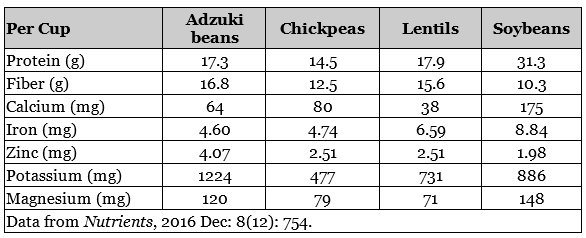"Real men don't drink soy"...
That line opened one of the most popular tips I've ever given in my Retirement Millionaire monthly letter.
Back in 2009, case studies found that men began growing breasts as a result of drinking soy milk.
The problem... soy protein contains genistein and daidzein, both known phytoestrogens (plant-produced estrogens).
High levels of estrogen in men causes reduced levels of testosterone, loss of muscle tissue, an increase of body fat, and a decrease in libido and sexual function. Too much can even tip you toward depression and type 2 diabetes. And in a few cases, men started to grow breasts...
In most of the extreme cases, the men in question drank excessive amounts of soy milk daily – some drank more than three quarts a day. That's far more than any recommended amount.
"Moderate consumption" of soy products is defined as one to two servings per day by the American Institute for Cancer Research. One serving is a cup of soy milk, a third of a cup of tofu, or half a cup of edamame.
Here's the thing... That bullet published in September 2009 and only focused on men. But what about women?
Surprising new studies show that some women actually benefit from soy products.
The research on soy products and menopause relief is controversial at best. You can find arguments on either side.
However, a new study in the journal Menopause shows that some women benefit from soy. The reason is that some folks possess gut bacteria that break soy down into something called equol, which acts just like human estrogen. Those who can make equol saw fewer drops in bone-mineral density and fewer symptoms of menopause including hot flashes, headaches, insomnia, and mood swings.
While I'm still wary of too much soy consumption (regardless of sex), women should know and understand the possible benefits of light to moderate consumption.
In addition to the hormone benefits, soy also provides nutrients that help protect our bones. Not only do you need calcium for bone health, you also need vitamins C, E, and K, as well as magnesium and boron to help absorb calcium and build bone.
If you remember our issue on the importance of getting enough salt (including "salts" like magnesium and potassium), it's important to help fight hyponatremia. Hyponatremia is one of the causes of so many falls in folks over 65.
In fact, low magnesium and potassium levels in Americans' diets are probably a major component of high-blood-pressure problems, too.
Well, it turns out soybeans are a good source of these nutrients. One serving (about 3.5 ounces or a half cup) has 9.4% of your daily requirement for potassium and 31.1% of your daily protein intake. It also packs a lot of iron, magnesium, and calcium.
Soybeans also contain healthy fats. One serving includes 1.7 grams of monounsaturated fats and about 4.4 grams of polyunsaturated fats – both excellent fats for your health. (Read more in our fats issue, here.)
Take a look at how it compares with other legumes...
As for those folks who can't have dairy and worry about going over the two-serving limit for soy products, there are plenty of other options on the market... with more coming out every day.
Just like with regular dairy products, you don't want to go overboard on the number of servings. Make sure you read the labels and look out for fat content and type as well as any added sugar (flavored soy milks have a ton).
This research into the benefits for women doesn't mean I'm going to jump back on the soy wagon. On the contrary, I still stick to my drastic cutback... I might have soy milk in my coffee about one out of every 15 drinks I get from Starbucks and I'll enjoy some edamame once a month.
However, if you or someone you know suffers from the side effects of menopause or post-menopause, try adding a little soy to your diet. And if it helps you with your symptoms, let us know by writing to us at [email protected].
What We're Reading...
- Harvard's The Nutrition Source covers the truth about soy.
- Something different: This 12 year old is already on the path to curing cancer.
Here's to our health, wealth, and a great retirement,
Dr. David Eifrig, and the Retirement Millionaire Daily Research Team
April 19, 2017

